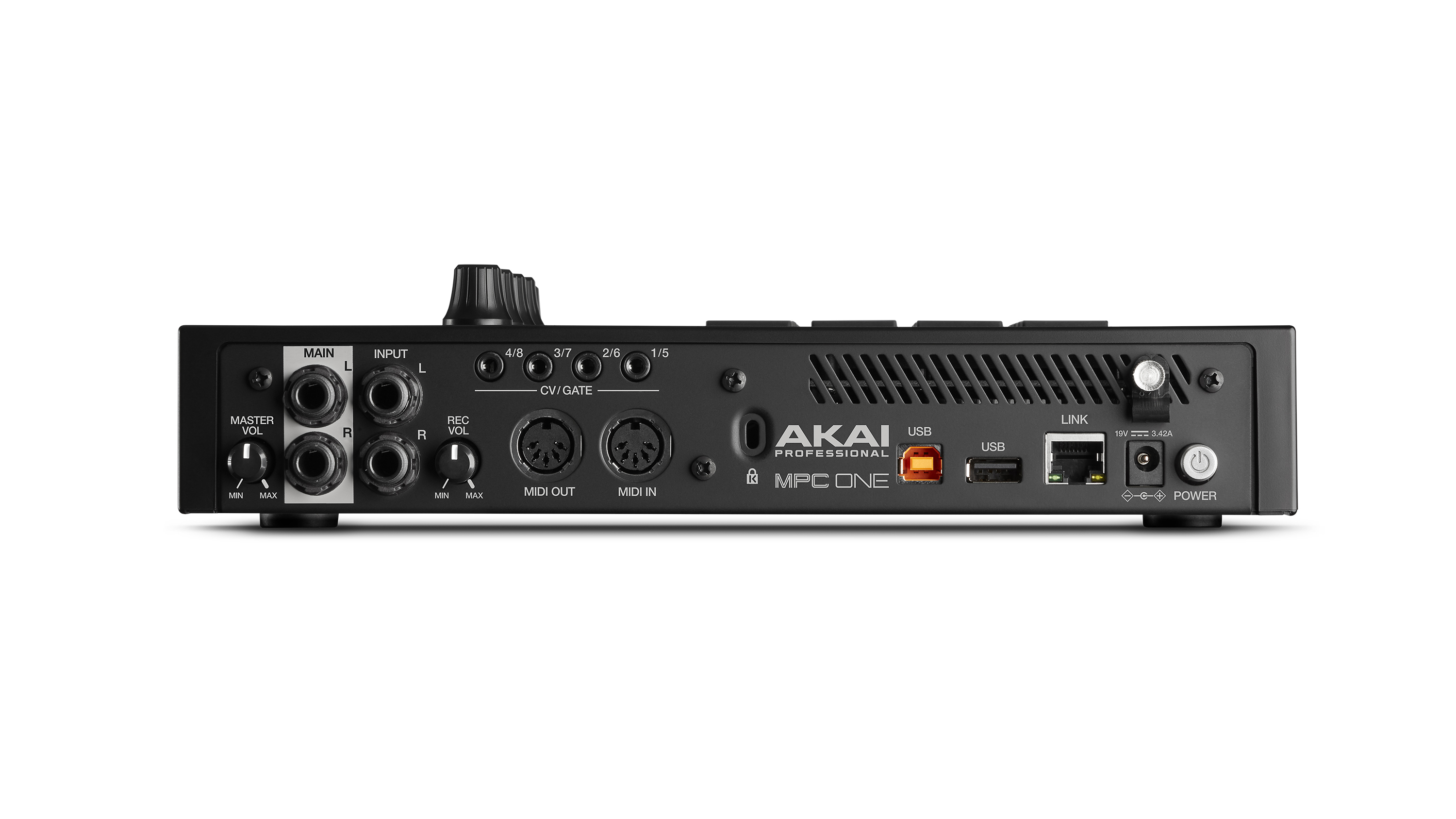NAMM 2020: Akai’s MPC One could be the backpack-sized beatmaker you’ve been waiting for
The latest standalone MPC is the most affordable and compact in the range
NAMM 2020: Akai Professional has unveiled the MPC One, a new standalone production tool that slots in as the smallest – and most affordable – of the company’s current crop of hardware beatmakers.
It’s fair to say the past decade has seen a few twists and turns for Akai’s iconic MPC line. In 2012, the range morphed from its traditional ‘all-in-one-box’ format to become a hybrid controller-software system more akin to NI Maschine. In 2017, however, the MPC returned to its standalone roots with the impressive MPC Live and its behemoth sibling the MPC X. The One now joins that range as a more compact and wallet-friendly counterpart to the MPC Live.
Much of what impressed us about the MPC Live remains intact here. As you’d expect with any MPC, the main focal point of the control panel is a grid of backlit, velocity-sensitive performance pads. As with the Live and X, these are joined by a high-def 7” touchscreen – here placed above, rather than next to the pads – along with four touch-sensitive rotaries for quick, hands-on manipulation of parameters.
There’s still 2GB of RAM under the hood, meaning that the MPC One can run the same OS as its bigger siblings. This means the One can make use of the same impressive Electric, Tubesynth and Bassline synths, along with a flexible library of AIR effects tools. One area that things have been trimmed down is storage - there’s 4GB of onboard memory here, pre-loaded with 2GB of new sample material, compared to the Live’s 16GB of storage. USB and SD card slots allow this to be expanded though.
The most significant element of the MPC Live that appears not to have been brought across here is its rechargeable lithium-ion battery. This means that, although the MPC One looks to be the most compact and lightweight of the range, it can’t match its bigger sibling for true use-anywhere portability. Given the desire to keep the price and size down though, it’s not hugely surprising that this feature has been lost.
On the connectivity front, the MPC One features a stereo pair of main output jacks and a stereo pair of inputs for sampling and recording. There are also four stereo 3.5mm jack outs for CV/gate control of external instruments. These are joined by MIDI in and out and a USB port for connection to a computer. As with the other MPCs in the range, the One can also act as a controller for the (included) desktop version of the MPC 2.0 software.


Other features include wireless network connectivity and Splice sample integration. We assume the Ableton Live controller mode that was recently introduced for the other MPCs will also be available here, but Akai has yet to confirm this.
Get the MusicRadar Newsletter
Want all the hottest music and gear news, reviews, deals, features and more, direct to your inbox? Sign up here.
The MPC One is due for release February 2020, with a price of £639/$699 – for comparison, the MPC Live currently retails for around $999. Head to the Akai Pro website for more details.


I'm the Managing Editor of Music Technology at MusicRadar and former Editor-in-Chief of Future Music, Computer Music and Electronic Musician. I've been messing around with music tech in various forms for over two decades. I've also spent the last 10 years forgetting how to play guitar. Find me in the chillout room at raves complaining that it's past my bedtime.
Don’t miss this record-breaking 100-Hour DJ marathon livestream fundraiser featuring 90 artists
“It's our passion to bring songwriting back to the historic heart of the West End”: An all-new, star-studded writer’s retreat is aiming help make history in London’s iconic Denmark Street









